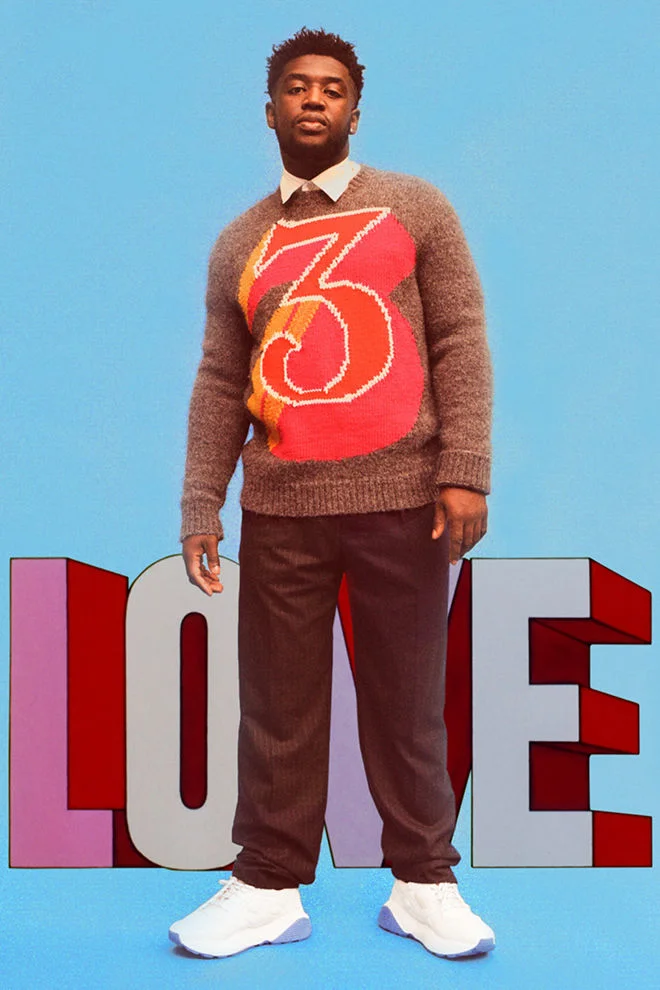Honoring Our Pasts: Gucci & Stella McCartney
“It affected me in a way I just wasn’t expecting. Especially this idea of connecting people and bringing people together—politically this message has never been more relevant. ”
Trends make their way into prominence through music, fashion, and film. Considering trends within the fashion industry, one may notice the transition from the once wardrobe staple flared jeans to prominent shoulder pads, endless flannels, and finally copious amounts of sequins. Celebrity icons solidified these fashion trends within both music and film, and in turn, perpetuated by our coveted media outlets. Currently, past trends have resurfaced in the fields of fashion, film, and music. However, alongside the revival of trends, it is notable to recognize their linked history.
One trend that has emerged at the forefront of fashion is the flamboyant sunglasses of brands such as Gucci. Not merely a frivolous fashion choice, this trend signifies an ode to pop culture icons of the past, such as singer, songwriter, and pianist and composer Sir Elton John. However, for John, sunglasses are much more than an accessory; sunglasses are an essential facet of his costume, his battle armor as he takes on worldwide audiences with a flair and eccentricity that is uniquely his. Throughout his career, John has served as a symbol of the unabashed celebration of self-love and expressive individuality. His larger-than-life presence emblematizes the trends consistent with his style and, consequently, permits others to radiate John's essence in their everyday lives.
The release of films centered on various pop culture icons, including Elton John and Freddie Mercury, augment the viewers' understanding of these stars' profound roles in the creative fields. This resurfacing makes apparent that these individuals have paved the way for many to follow. Such films also inevitably supply younger generations with knowledge of the music and artistic innovation of historical rock and pop figures while simultaneously inspiring these audiences with the narratives and aesthetics once admired by their elders.
This generational juxtaposition is evident in the film Yesterday. In the movie, the protagonist finds himself in a world where he is the sole person who remembers the Beatles' legacy. With this in mind, he uses the songs by the iconic British band and appropriates them for his contemporaries. This plot does not encourage imitation and plagiary. Instead, it is a figurative portrayal of music's ability to supersede divisions – uniting individuals of all ages and demographics. Thus, Yesterday illustrates the lasting impact of music that once united the world, serving to not only solidify the Beatles' near 60-year legacy but also depict the significance of music in our linked understanding of the past.
Considering the Beatles, designer Stella McCartney, daughter of the Beatles' Paul McCartney, is known for her star-studded designs and her relationship with her star-studded father. In celebration of the 50th anniversary of the album 'Yellow Submarine,' Stella effectively incorporates the iconic graphics from the video in her new collection. Stella utilizes the kaleidoscopic colors and humorous characters to create an inviting line. While the aesthetics of the clothes are notable, its sentiments are genuinely the most profound—of love, positivity, and creativity. Her pieces transport the customer to the harmonious psychedelic work of "Yellow Submarine," where "all you need is love." The line honors not only father and highlights up-and-coming creatives. The models featured in the campaign include KEYAH/BLU, Joy Crookes, Oscar Jerome, and Femi Koleoso. This campaign metaphorically passes the torch onto a new generation of musicians who will make their mark within the music industry, just as the Beatles once did.
By revival of such films and trends, our culture is ultimately reminded that generations are not estranged from their ancestral pasts. Consistent with Stella's naming of the line, 'All Together Now,' we are further reminded by the powers of timeless music; we are all inextricably connected. By understanding our pasts and paths carved for us formerly, the human race is better today. And due to Yesterday, our population strives for a more tolerant, informed, creative, and loving tomorrow.











